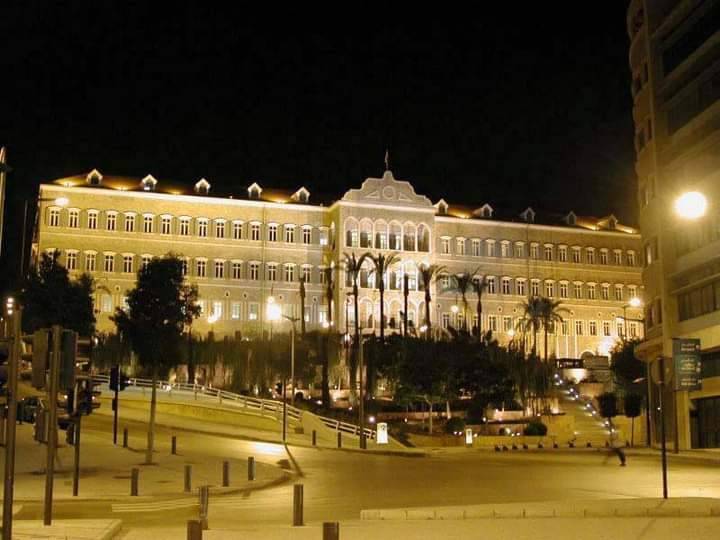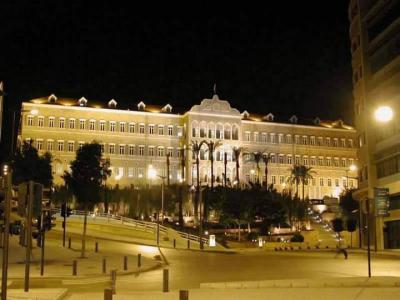As disagreements between the power structures escalate and the formation of a new government is delayed, approaching the presidential election date raises constitutional interpretations and discussions—sometimes turning non-constitutional—regarding whether the current caretaker government can exercise the powers of the Council of Ministers in the event of a presidential vacancy, which means the inability of the parliament to elect a president based on the provisions of Articles 73, 74, and 75 of the constitution. The constitution states in Article 62: "In the event of a vacancy in the presidency for any reason, the powers of the President of the Republic shall be entrusted to the Council of Ministers." Many questions can be raised, along with numerous ideas, interpretations, and constitutional analyses that arise in case political deadlock continues and paralyzes the country and its institutions. Therefore, it is natural for each political party or faction to promote ideas that suit them and may not necessarily align with the constitution, which becomes a viewpoint for most political forces at each crossroads or electoral obligation.
In this context, some political forces have started seeking constitutional interpretations affirming that the current caretaker government can exercise all the president's powers based on Article 62 of the constitution. Constitutional sources state that "if a government is formed and gains confidence, we will have a complete government that can exercise presidential powers in the case of a vacancy. As for the resigned government, it cannot exercise all of its powers, and therefore it cannot assume the powers of the President of the Republic." Supporters of this view include constitutional expert Dr. Hassan Al-Rifai, who has held this position since 2013, during a period leading towards a presidential vacuum starting in 2014 and continuing until 2016. He states, "The caretaker government is practically a dead government tasked with limited functions according to the constitution, while the presidential powers are complete and cannot be diminished, and the caretaker government cannot assume presidential powers under the provisions of the constitution. For it to take over presidential powers, it must be legitimate and have the confidence of the parliament."
Former Minister Ziad Baroud confirms that "the text of Article 62 does not differentiate between a government with complete powers and a caretaker government, and between limited functions and complete vacancy; it is better for there to be an authority in the country managing affairs." Baroud reminds that Article 64 of the constitution states, "The government does not exercise its powers before gaining confidence or after its resignation or being considered resigned except in the narrow sense of handling current affairs," without specifying the actions.
He also refers to constitutional interpretations from the State Consultative Council issued in 1969 and 1995, which discussed the narrow meaning, differentiating between administrative acts and current affairs—critical matters related to the country's safety and security or tied to constitutional deadlines.
Between these interpretations, a constitutional problem arises that could impede the formation of a government or its gaining confidence, turning it into an original government. This issue pertains to the parliament becoming an electoral body starting from the 60 days preceding the end of the president's term, according to Article 75 of the constitution, which states, "The assembly convened to elect the President of the Republic shall be considered an electoral body and not a legislative one, and it must immediately commence the election of the head of state without discussion or any other proceedings."
Despite the almost unanimous interpretation that this text applies specifically to sessions of the parliament designated by the call of its president for the election of the president, and not to all parliamentary sessions, it does not prevent the following questions from being raised: What if the situation remains unchanged until August 31? How will the government gain confidence? Does the government remain suspended until it gains confidence and a new president is elected? Can the caretaker government expand its scope of work based on ensuring the continuity of public services without being accountable to parliament? Also, it was a government that operated before being considered resigned with the confidence of a parliament whose term has ended and handed over authority to a new parliament through recent elections.
Given that numerous legal opinions and constitutional analyses exist, including those which suggest that any government is considered resigned at the end of the president's term, it should be noted that Article 69 of the constitution, which discusses in clause (d) the cases in which the government is considered resigned, states: "At the beginning of the term of the president of the republic," and not upon the end of the president's term.
To avoid further constitutional absurdities and arbitrary interpretations, what is required, and correct to put matters into their natural order, is to expedite the formation of a government quickly and to obtain its confidence from the parliament to become fully empowered. Afterward, the constitutional path related to the presidential election should commence when the constitutional deadlines arrive; otherwise, this is nothing more than justifying constitutional vacuums and prolonging the crises faced by the Lebanese people.




